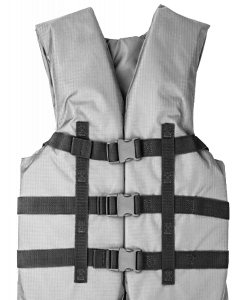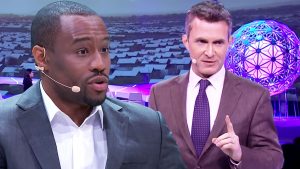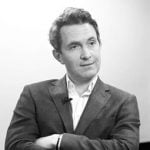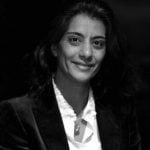Global Refugee Crisis Debate Recap
By Daniel King for Doha Debates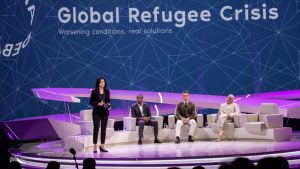
Our first live debate ended as passionately as it began, with an urgent call for common ground and thoughtful solutions to the global refugee crisis — but the conversation continues offstage as we all look for ways to improve the deteriorating conditions and critical challenges facing millions of refugees.
Solutions, not division, were the debate’s goal, but deep differences were exposed upfront as each speaker planted a flag in the conversation to see where common ground exists. Moderator Ghida Fakhry asked everyone to look for “what brings us closer” rather than “what drives us apart.”
The speakers met Ghida’s challenge. U.S. journalist and political activist Marc Lamont Hill called for more welcoming borders and public pushback to concentrated power. British journalist and author Douglas Murray called for balance between mercy and justice, including justice for host countries accepting refugees. And Muzoon Almellehan, a Syrian refugee, advocated for higher-quality education for refugee children, who make up half of the world’s refugee population.
Marc spoke first, disputing the very framing of the debate. He said the idea of a “global refugee crisis” mistakes the root cause of refugees’ challenges: the concentration of political power. He pointed out a crisis not of refugees but of power disparities, and he asked everyone to resist, “push back” and “undermine power structures.”
“Organized people can and do defeat organized power.”
—Marc Lamont Hill
 Debate speaker Mark Lamont Hill.
Debate speaker Mark Lamont Hill.
In Ghida’s follow-up, she pressed Marc for details, asking if his “utopian” vision was not “realistic” and if he was “overly optimistic.” Marc’s answer: “No, because my optimism is anchored in action…. Teaching is a form of resistance. Writing is a form of resistance. Representing is a form of resistance.”
Douglas took the floor next, drawing a sharp contrast and exposing rifts but looking for common ground. The author of The Strange Death of Europe, Douglas named two “competing virtues” at the root of refugee struggles and erupting violence in Europe.
The first, he said, is “the virtue of mercy — the desire to be merciful to fellow human beings who are suffering. The second is the virtue of justice, not just for those fleeing countries but those in the countries they are fleeing to.”
A solution, Douglas said, is to start respecting skeptics who “express legitimate concerns” about public safety and refugee integration without “dismissing those legitimate concerns as ‘xenophobic’ and ‘nativist.’ ”
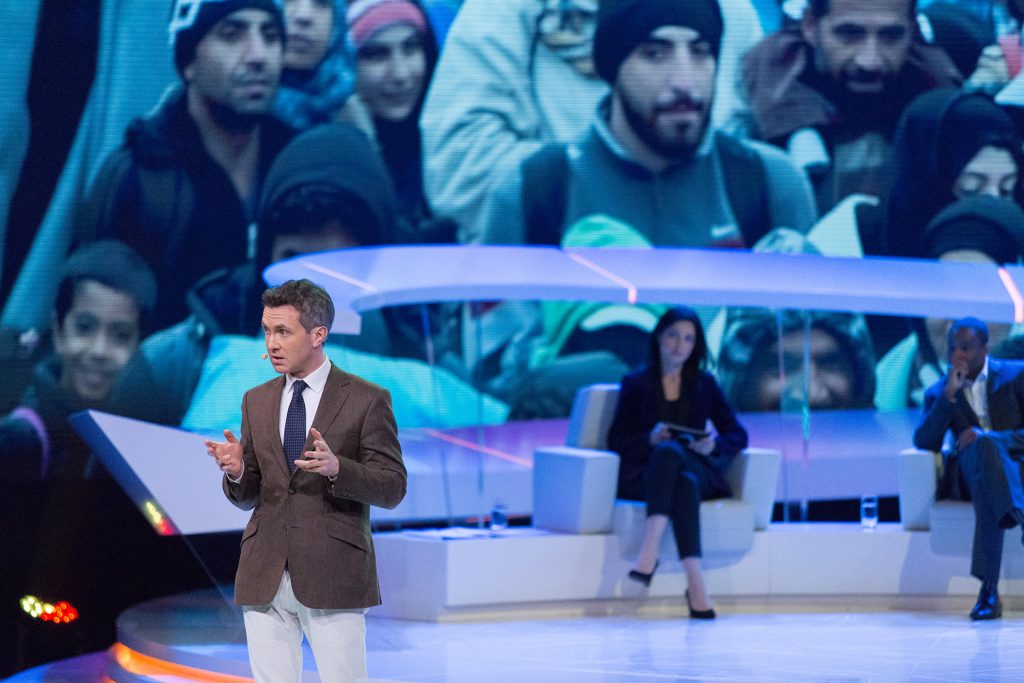
“We need a very clear line between people fleeing war zones and people fleeing economic deprivation.”
—Douglas Murray
In the debate’s most vivid exchange, Ghida challenged Douglas’s historical storyline: “You said ‘the developing world cannot move to the developed world.’ But you seem to conveniently forget that the developed world moved to the developing world without asking permission.”
Douglas turned the question around: “You make a big mistake if you think I haven’t heard of colonialism. Colonialism was not just a Western thing. What was one of the largest and most significant empires in history but the Ottoman Empire? Would you say Turkey has to do something like the West to deal with this?”
Another solution, Douglas proposed, requires “a very clear line between people fleeing for their lives from war zones and people fleeing economic deprivation.” If we can’t distinguish between refugees and economic migrants, we’ll “continue to erode public sympathy with people who need sympathy the most.”
 Debate speaker Muzoon Almellehan.
Debate speaker Muzoon Almellehan.
The debate took a more personal, moving turn when Muzoon stepped up to speak. A Syrian refugee, Muzoon fled civil war when she was 14.
“I had to flee,” Muzoon said. “It wasn’t my choice. I loved my home.” One of Muzoon’s proposed solutions: higher-quality education in refugee camps. “Without education, I cannot do anything in my life. Once I found it, I found hope. Please use your advantaged circumstances to help them. Push your governments to welcome those refugees.”
“Many of us think of refugees as numbers, but behind every number, there is a story.”
—Muzoon Almellehan
The debate was livestreamed exclusively on Twitter, where viewers added their voices by voting for the most convincing solution, announced by the debate’s digital correspondent, Nelufar Hedayat, an Afghan refugee and international journalist.

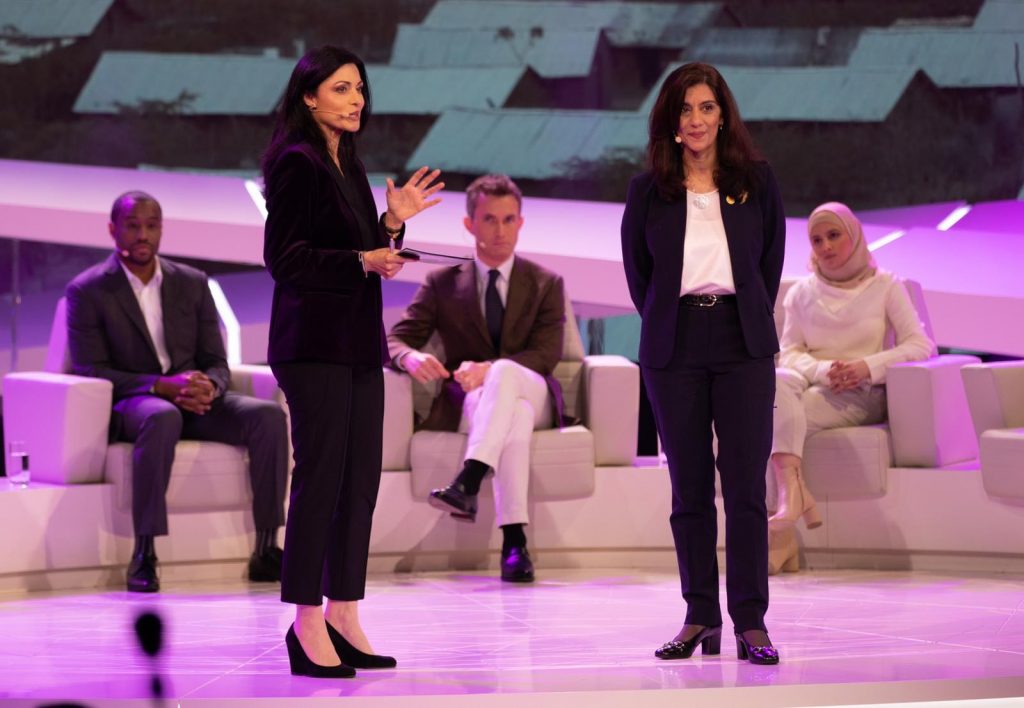 From top: Digital correspondent Nelufar Hedayat; moderator Ghida Fakhry (left) with debate connector Sanam Naraghi–Anderlini.
From top: Digital correspondent Nelufar Hedayat; moderator Ghida Fakhry (left) with debate connector Sanam Naraghi–Anderlini.
Sanam Naraghi-Anderlini, the debate’s bridge-building “connector” and an Iranian-born peace consultant to the UN, proposed ways to bridge differences, including financial “incentives to host-communities to accept refugees instead of putting money into walls and cages.”
Sanam recommended heavier investment in the empowerment of women and girls as global changemakers, and more investment in peacekeeping than war-building.
With the debate winding down, Ghida opened the floor to audience questions, which were laser-sharp and lively, primarily from students at Qatar Foundation’s Education City, the innovative collection of top universities in Doha, including the debate’s venue, Northwestern University in Qatar.
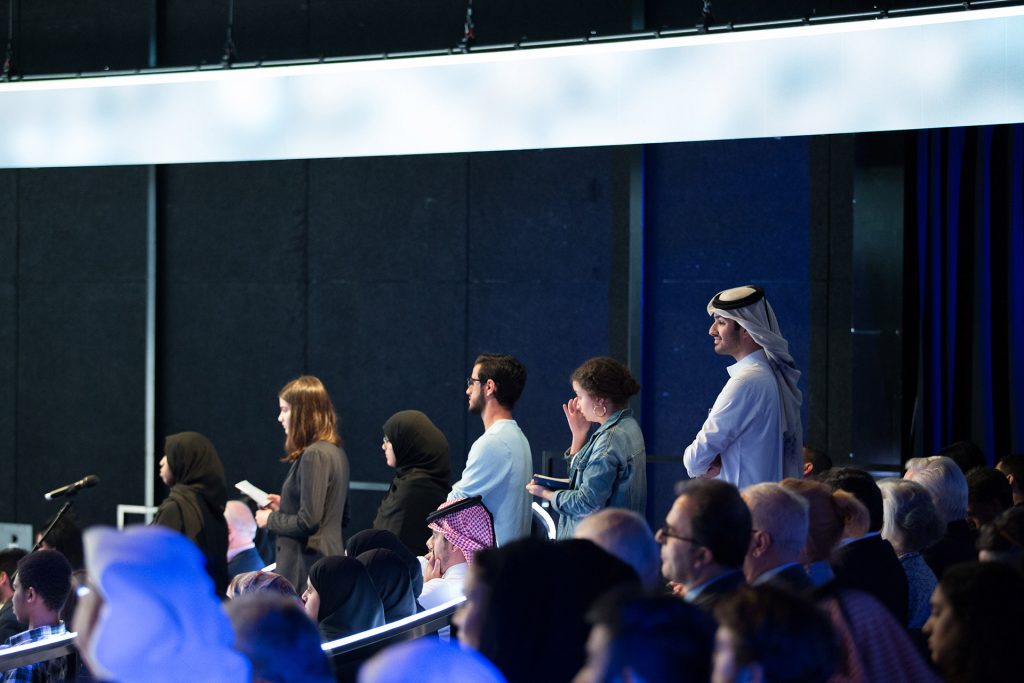
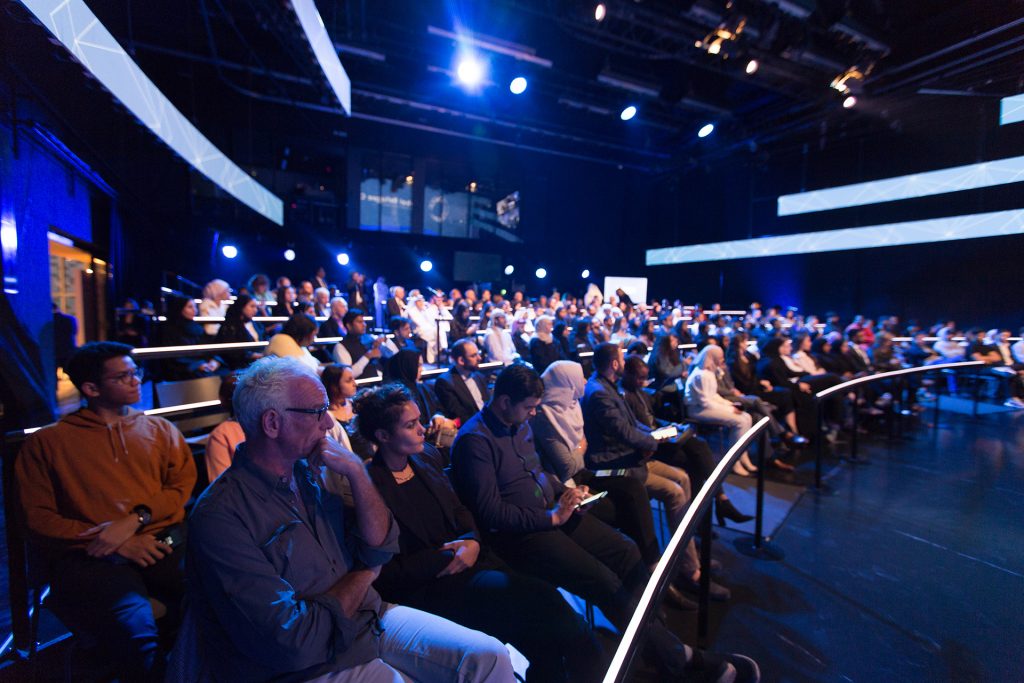
No single event can alleviate the challenges facing all 25 million refugees, but tonight’s debate moved the needle on hard conversations across differences. The evening closed with a call to action, inviting everyone to share voices and solutions @DohaDebates with the hashtag #DearWorld.
Watch the entire debate
Global Refugee Crisis
